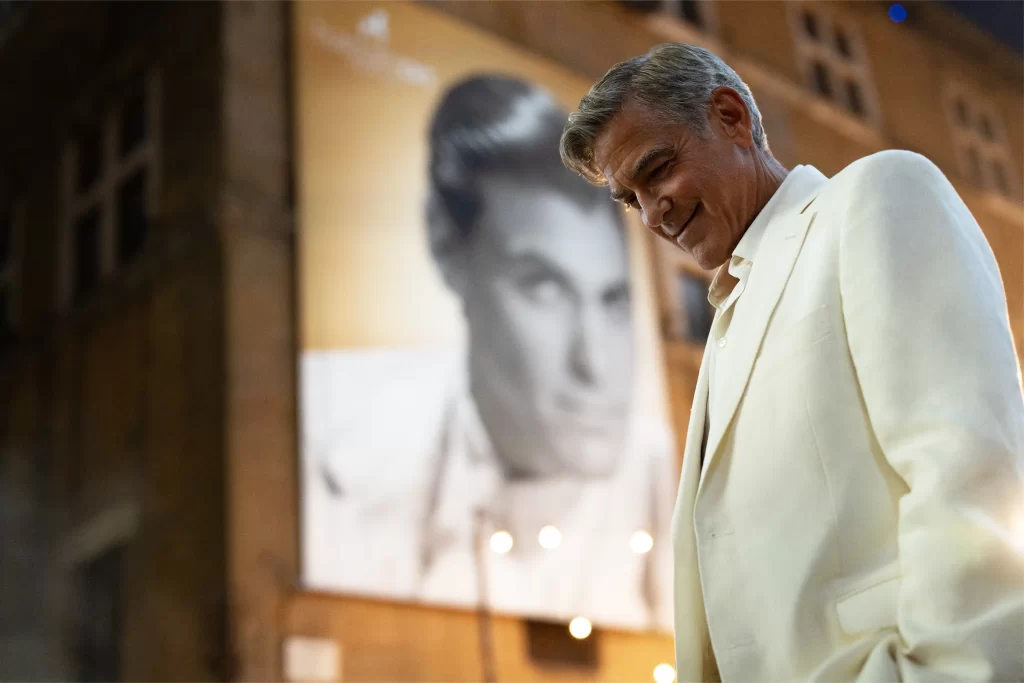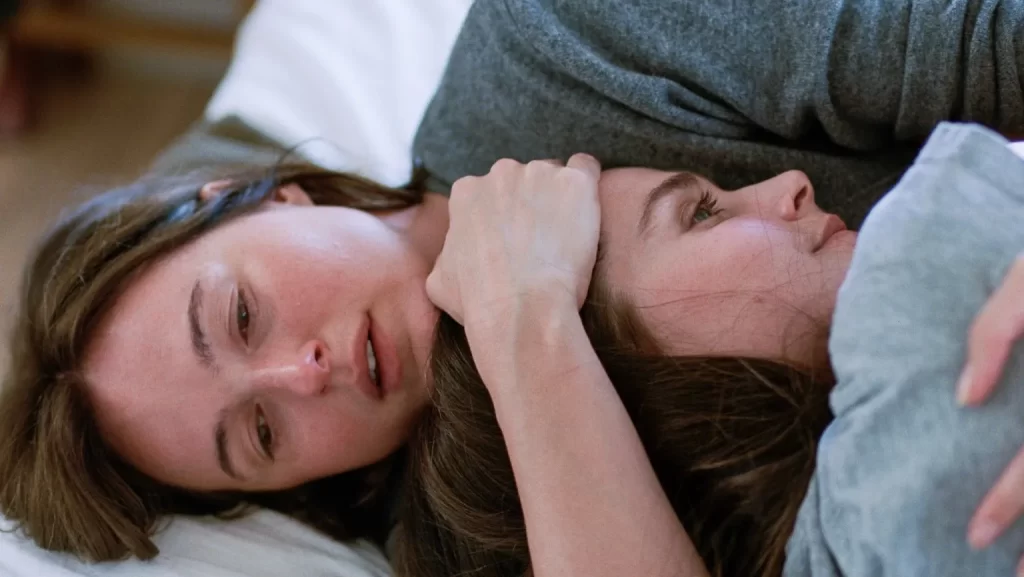It’s not that it’s surprising that Joel Coen’s adaptation of Shakespeare’s The Tragedy of Macbeth is so visually arresting – he and brother Ethan haven’t exactly been slumming it, craft-wise, in the thirty-plus years since they burst onto the scene with Blood Simple. But that film’s aesthetics had the razzle-dazzle energy of new filmmakers with something to prove, and Macbeth has much of that same quality, perhaps because Coen feels like he’s starting over. So he’s playing and pushing, with light and sound, right out of the gate, shooting in the boxed-in, square “Academy ratio” in luminous black and white, making breathtaking use of silhouette and darkness, and paying homage to any number of stylistic influences (film noir, German Expressionism, and/or the work of Orson Welles, who himself shot a highly stylized Macbeth in 1948).
But more than winking or playing connect the dots, Coen seems to have chosen black and white for its starkness – for what it does to his images of dripping blood, or birds circling overhead. And it allows him to paint his settings in darkness; the uncluttered design sets scenes more with lighting than set dressing. (The cinematographer is Bruno Delbonnel.) So he ends up with something that is neither merely film nor theater, but a mutation of both, taking advantage of the wide berth of expressionism we allow work on the stage, as well as the tools (visual effects, shock edits, etc.) of the screen.
However, all of this breathless praise of the film’s look and style isn’t meant to imply that it is a mere stylistic exercise. As ever, it is an actors’ showcase – quite literally in this case, as co-star and co-producer Frances McDormand convinced Coen, her husband, to make the film after she played Lady Macbeth onstage in 2016. Acting Shakespeare in this 21st century is an act of translation; the language is ours but not, and thus a good Shakespearean actor must build that bridge, conveying the meaning of the more obscure vernacular via intention and physicality, and finding the emotional through-line that makes the work so timeless.
Simultaneously, it’s an act of interpretation, of taking the well-known passages, turns of phrase that have become common currency, and making them fresh and meaningful in context. And this is where McDormand and her Macbeth, Denzel Washington, really deliver. Witness, for example, his delivery of the oft-quoted “is this a dagger” speech, the forces of hesitancy and blood thirst that seem to wrestle in each syllable that tumbles from his mouth. And then watch, in the following scene, how he plays that first murder – the deadness in his eyes, betraying how he’s made himself numb to the horror of the act.

Washington has always been an actor of unparalleled physical ferocity, so his force here is unsurprising but still remarkable; in one jaw-dropping sequence, he goes into a swordfight unarmed, and comes out of it like a Kurosawa character. But the knots of grey in his hair and beard tell their own story, and the weary resignation of his “tomorrow and tomorrow” speech borders on nihilism. It’s a spectacular performance.
He also nails the character’s descent into madness, and isn’t afraid to go all out with it; “Oh full of scorpions is my mind, dear wife,” he tells her, and we believe it. The actors’ parallel interpretations of their outcomes are a fascinating study in contrasts – Washington makes Macbeth’s madness weak and pathetic, but McDormand makes hers frightening. Her early scenes make expert use of her specialty of gritted-teeth impatience, and she finds all sorts of interesting variations on the character’s cynicism and ambition (her delivery of the “That which hath made them drunk” speech is delicious). In this beautiful pairing, Coen takes advantage of both what we know about these roles and what we feel abut these two actors. What a thrill it is to discover, this deep into their distinguished careers, that there is still more that they can do.
Coen also penned the screenplay, and it’s a highly streamlined, efficient adaptation, moving like a freight train at a scant (for Shakespeare) 105 minutes. Yet the machinations of the plot are conveyed with clarity (both visually and verbally), and Coen wisely keys in on the notion that it is, first and foremost, a thriller – and thus creates moments as stylish and striking (and, frankly, showy) as anything in Blood Simple. He plucks out the moments of bleak horror and comic relief (Stephen Root, in his one scene as said relief, nearly steals the movie), but doesn’t shy away from the real terror here, the overwhelming scene of dread and death creeping around every corner (“Each morning… new widows howl”). That feeling is further underscored by the elegant and elegiac gloom and doom of Carter Burwell’s music, and comes to a head in the final fight, whose conclusion literally made me gasp, it’s such a juicy intersection of grace, gore, and symbolism.
The Tragedy of Macbeth initially seemed (at least to this viewer) a peculiar choice for Coen’s solo debut, but it now seems inspired. By using a durable (borderline foolproof) text, he was able discard script concerns and instead focus on style and performance. In both areas, his “Macbeth” is all but flawless.



